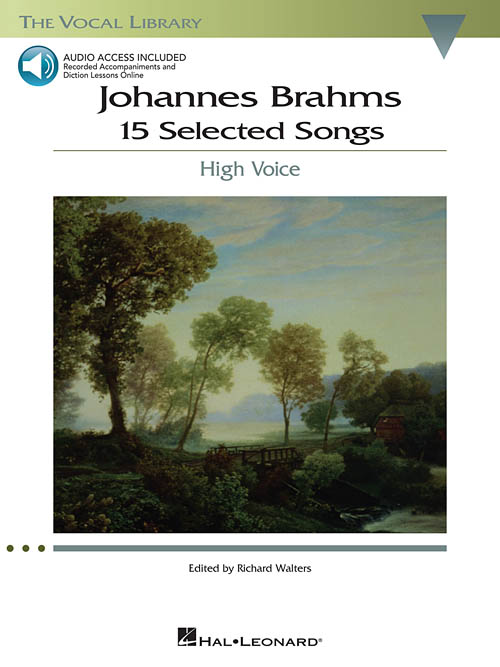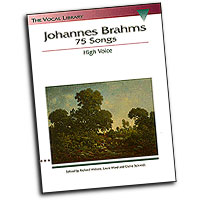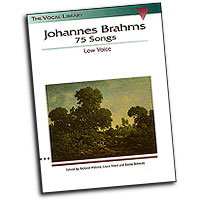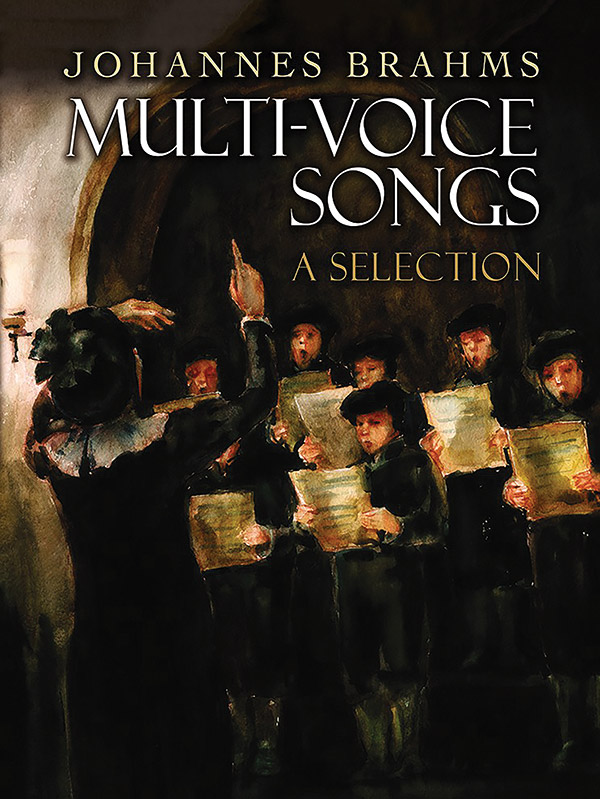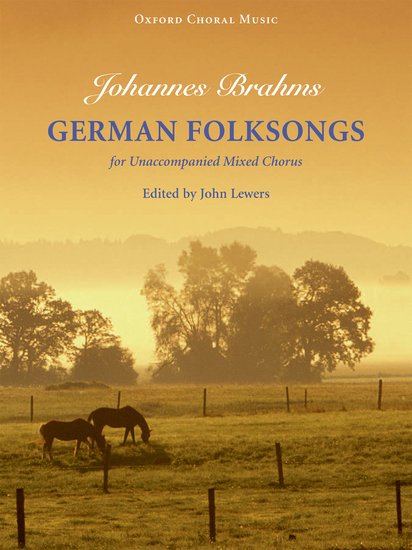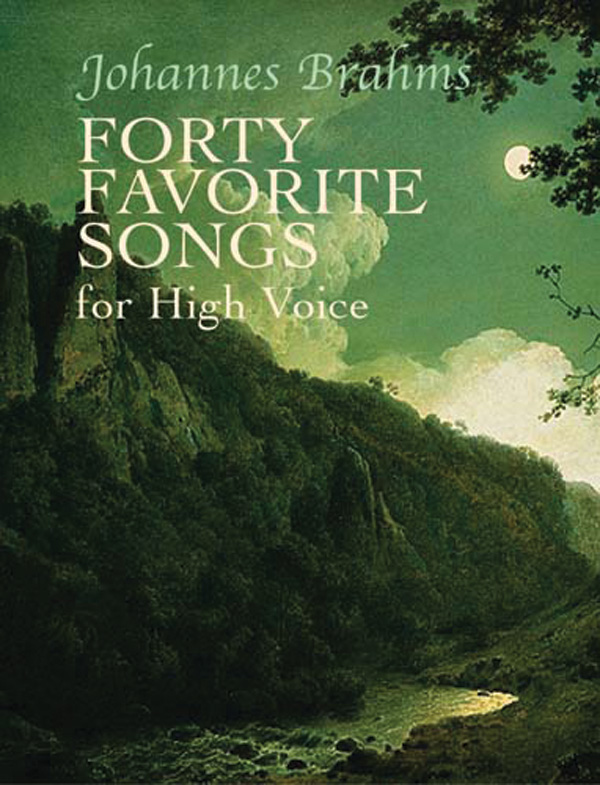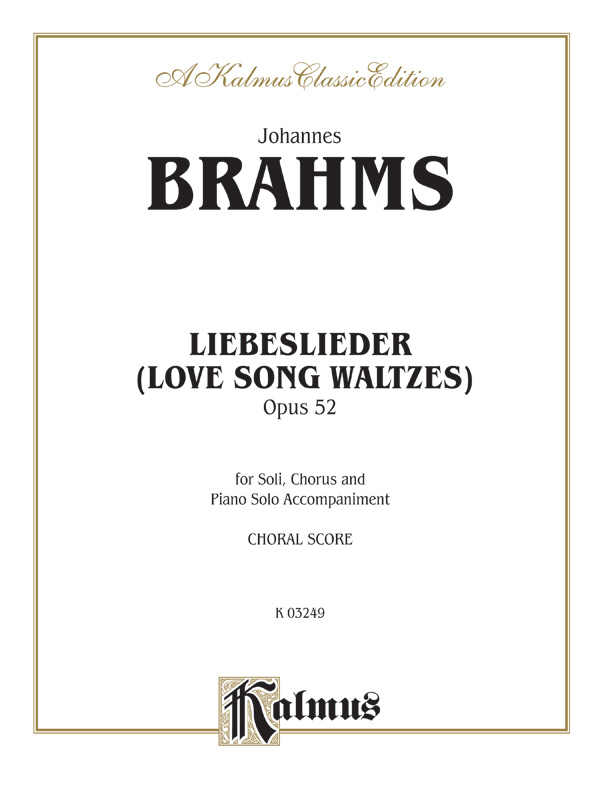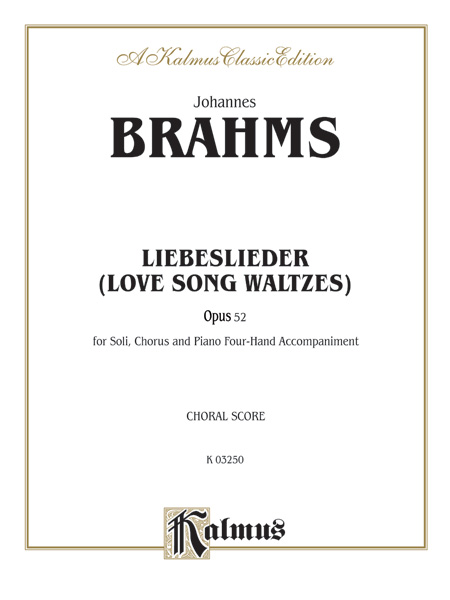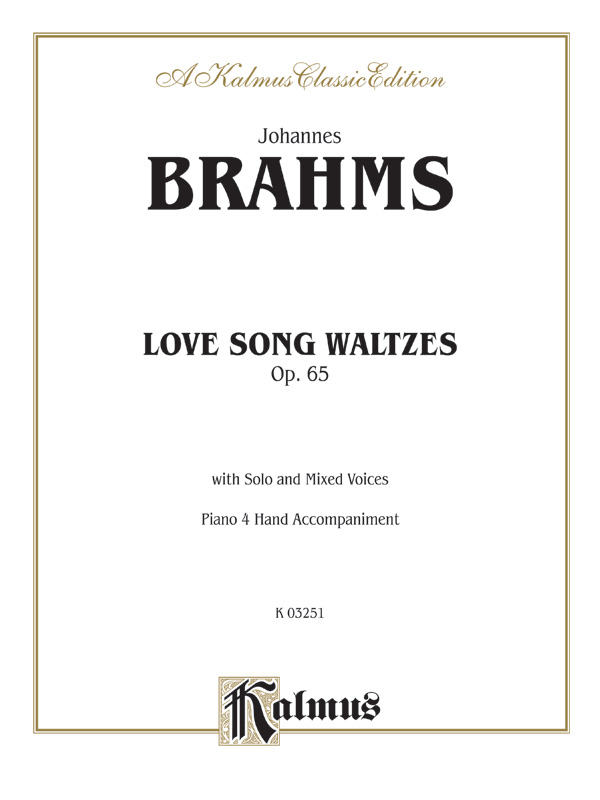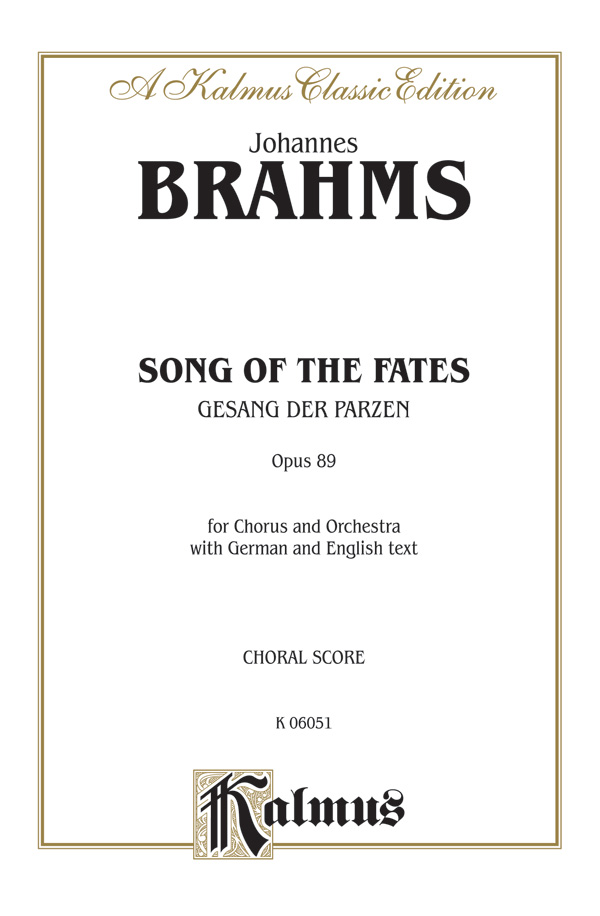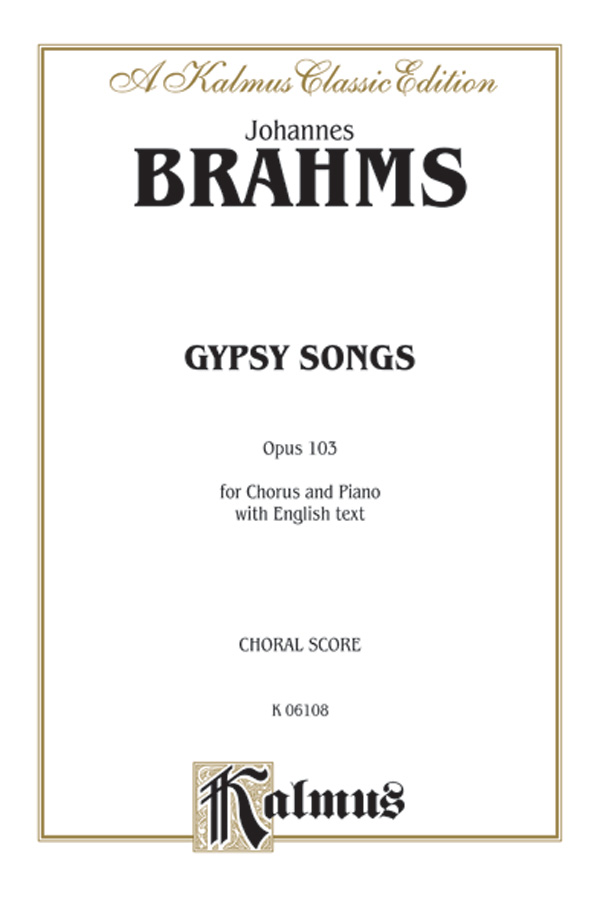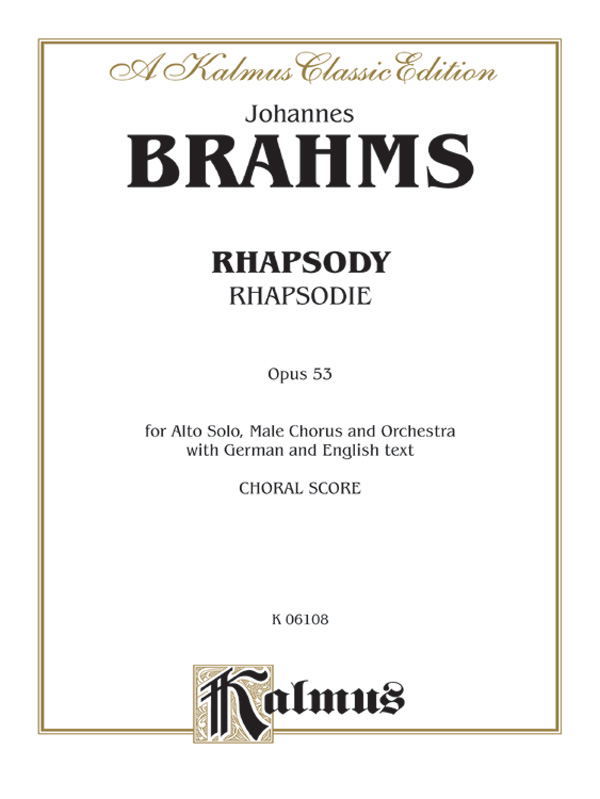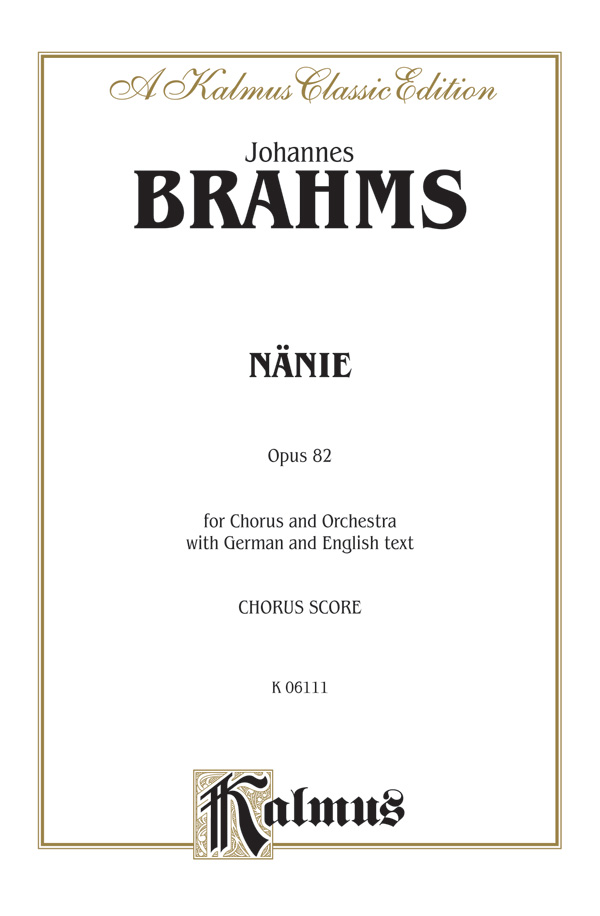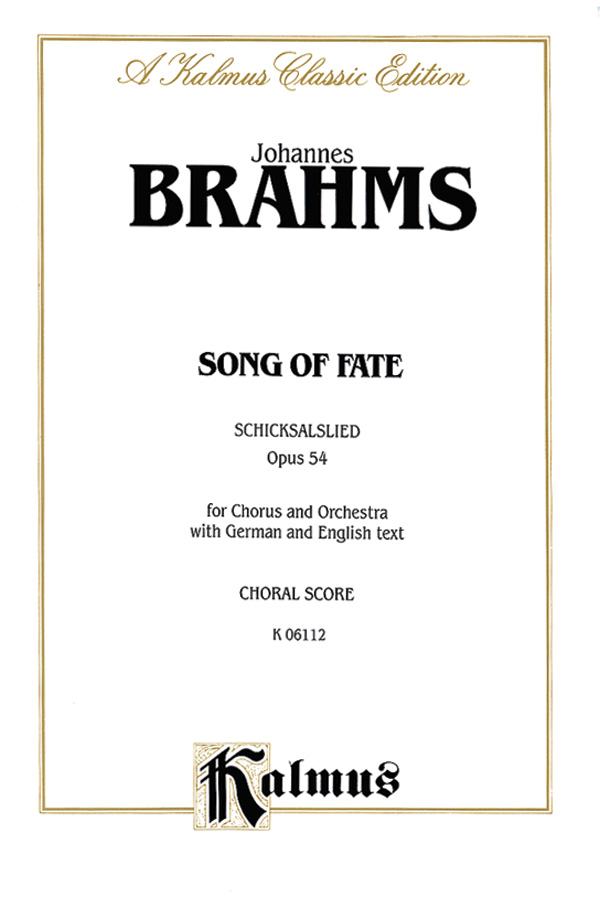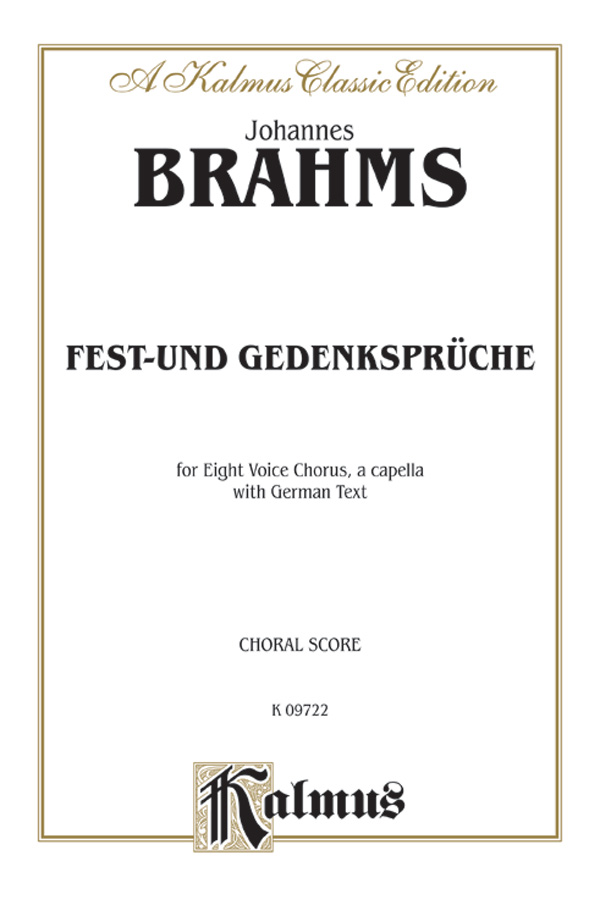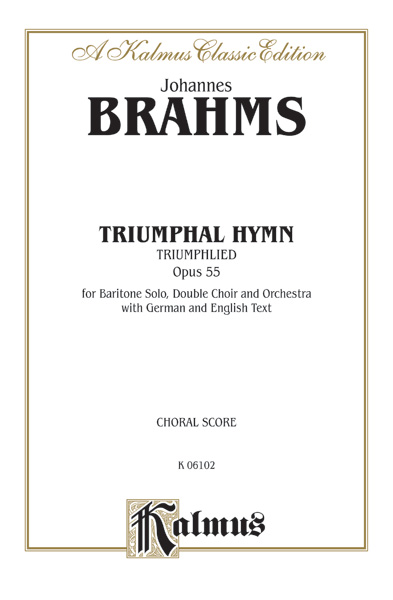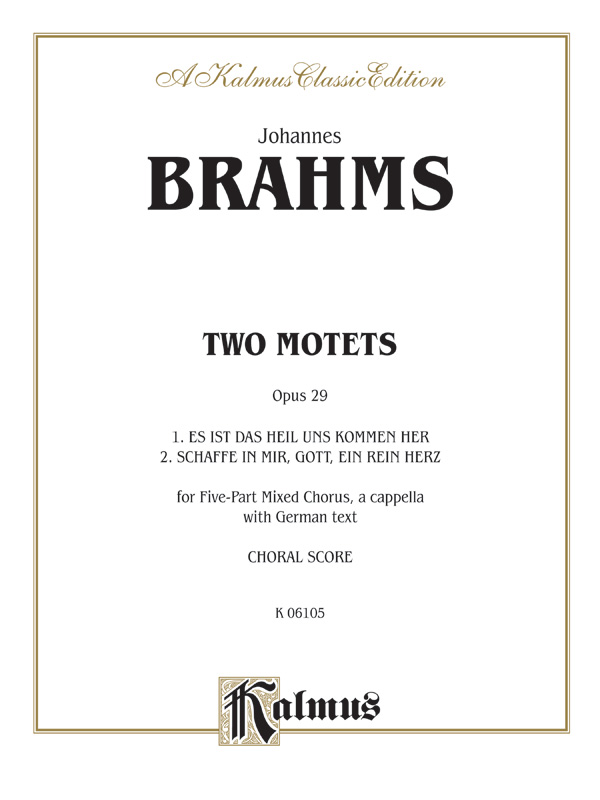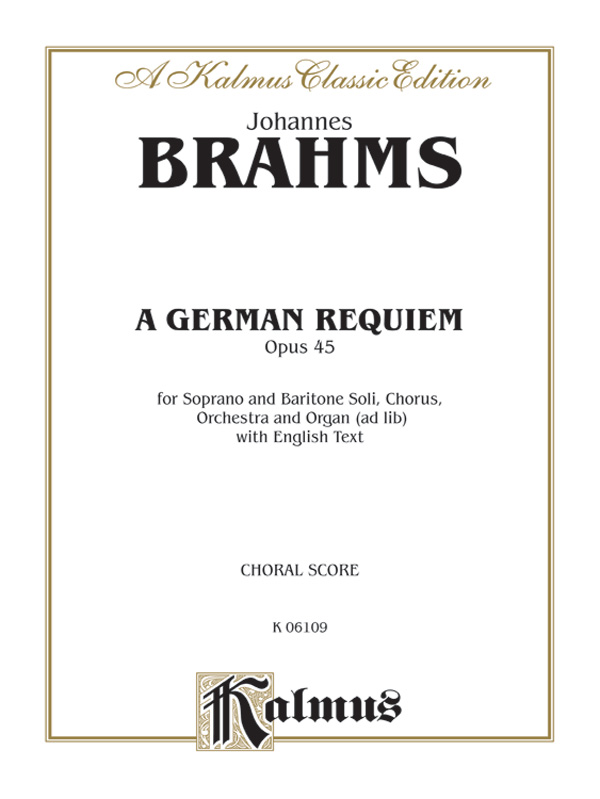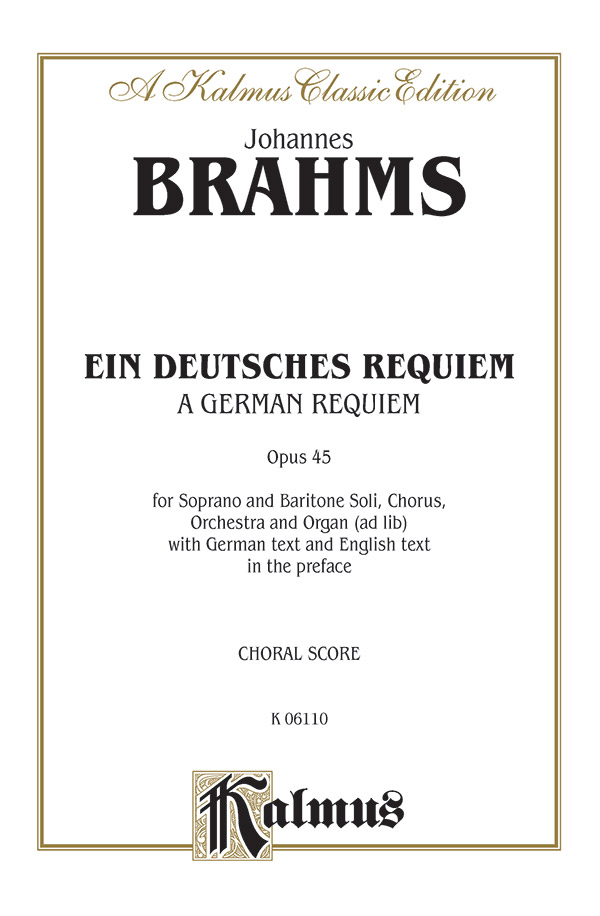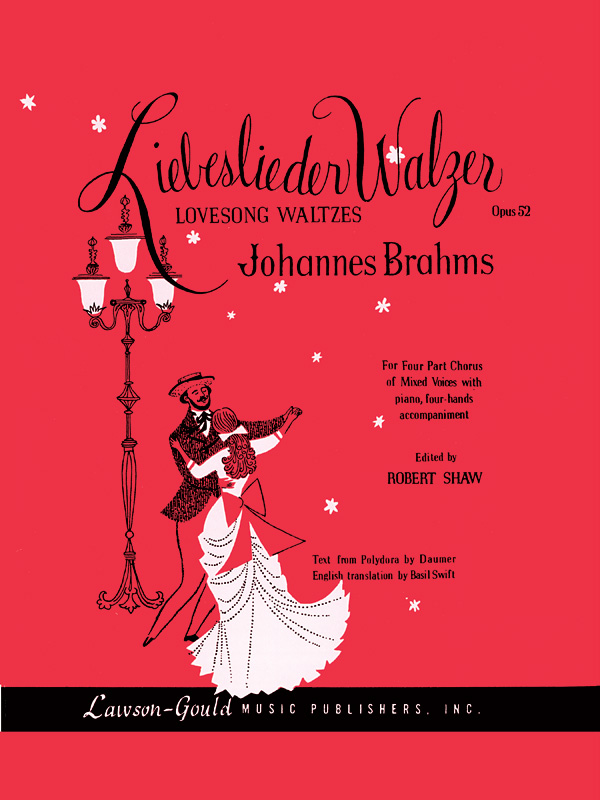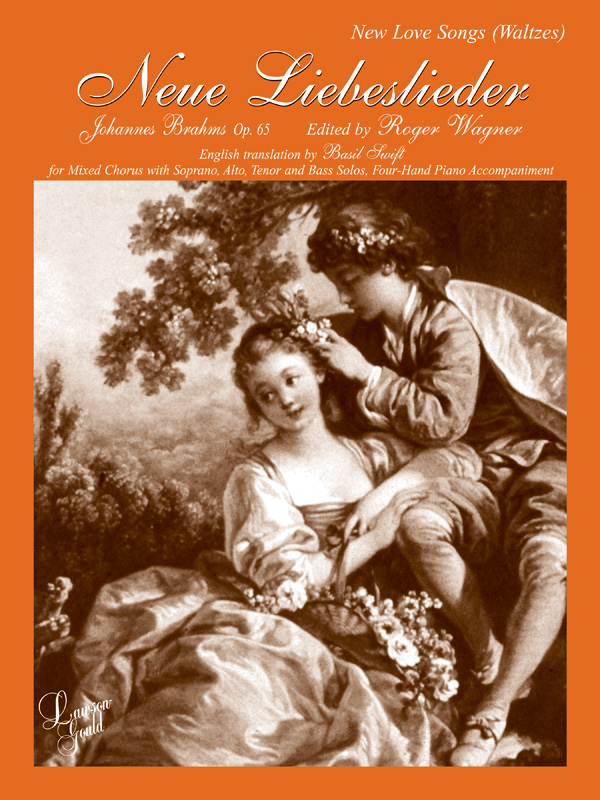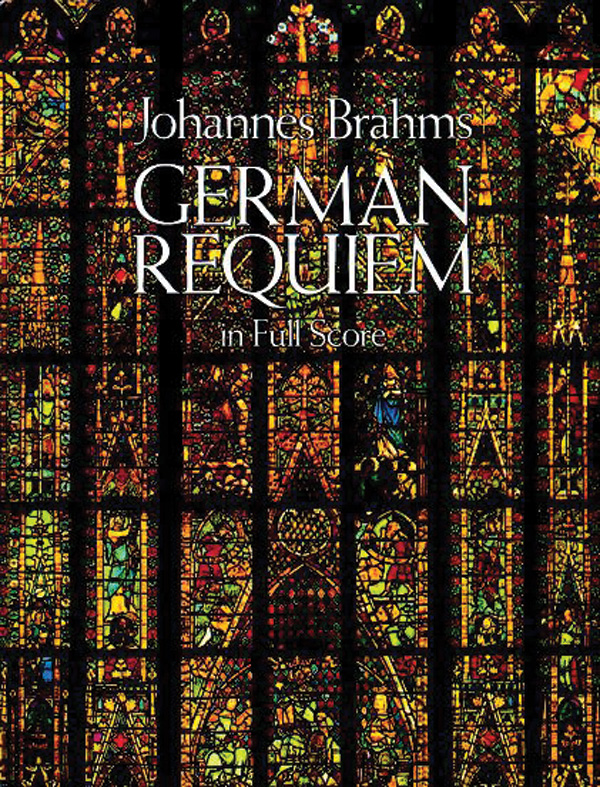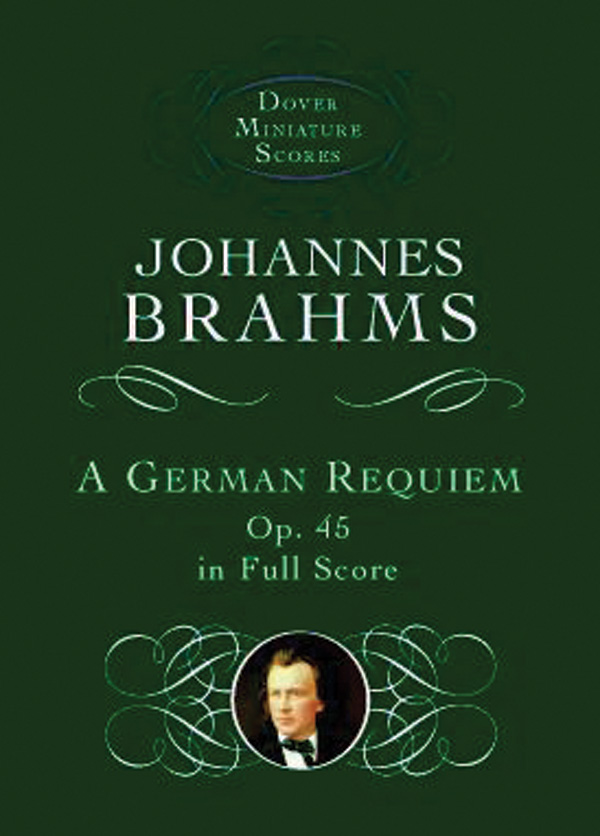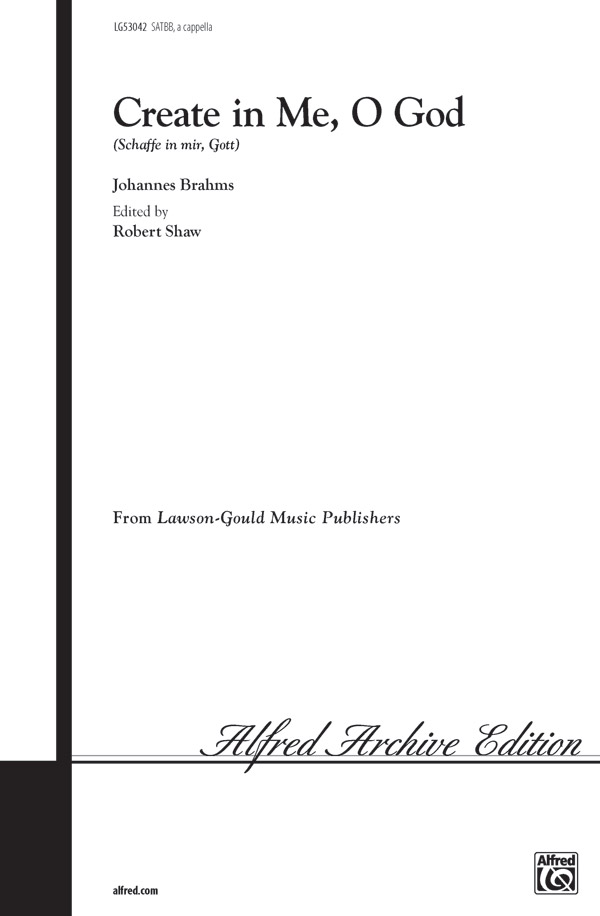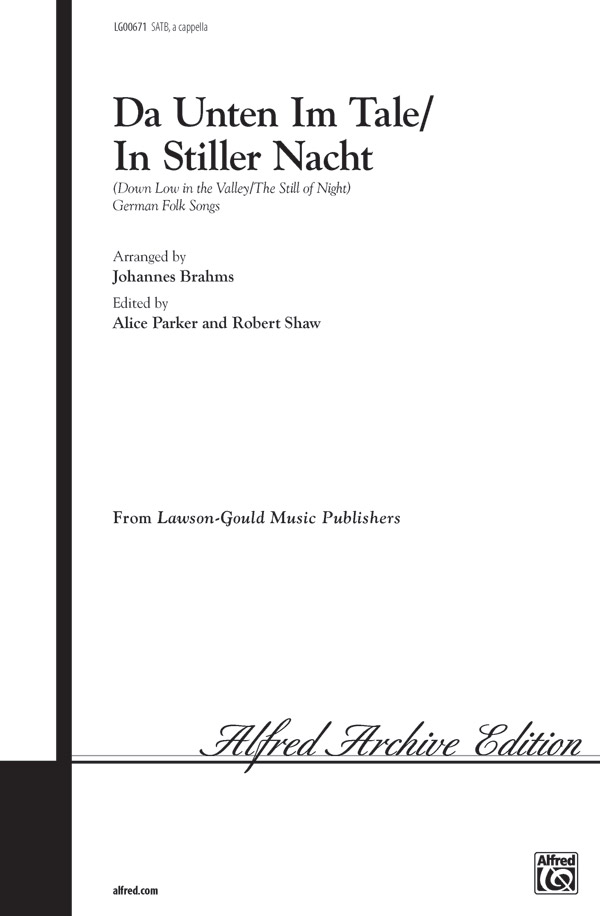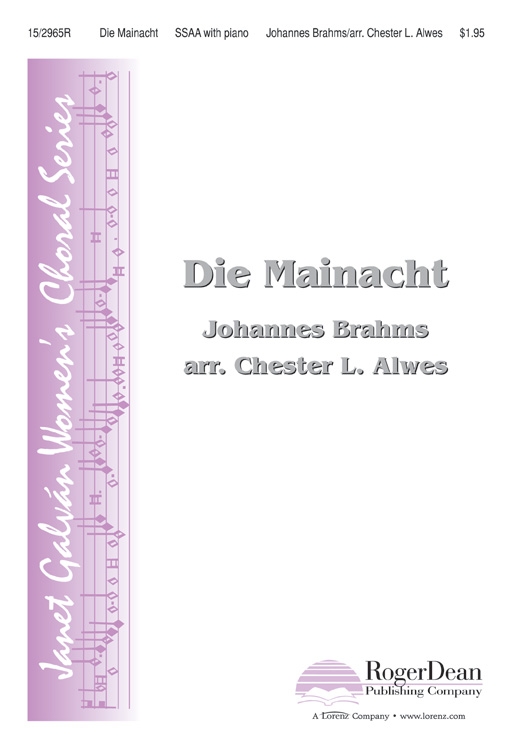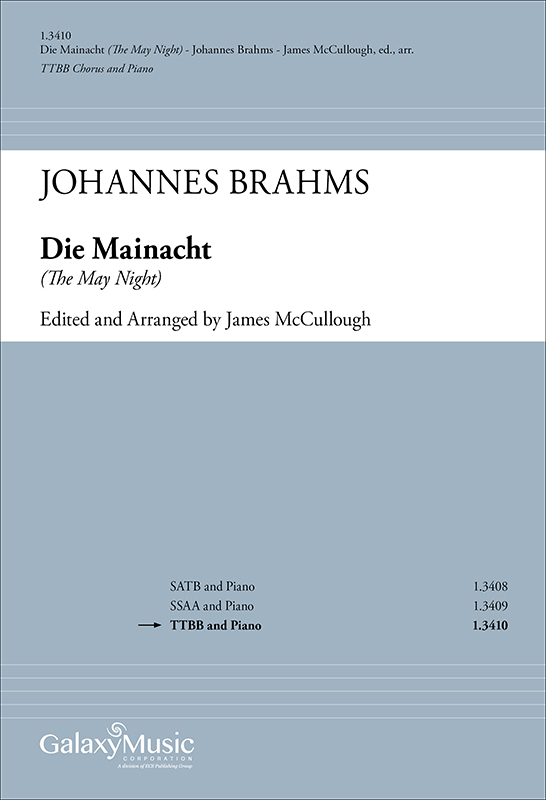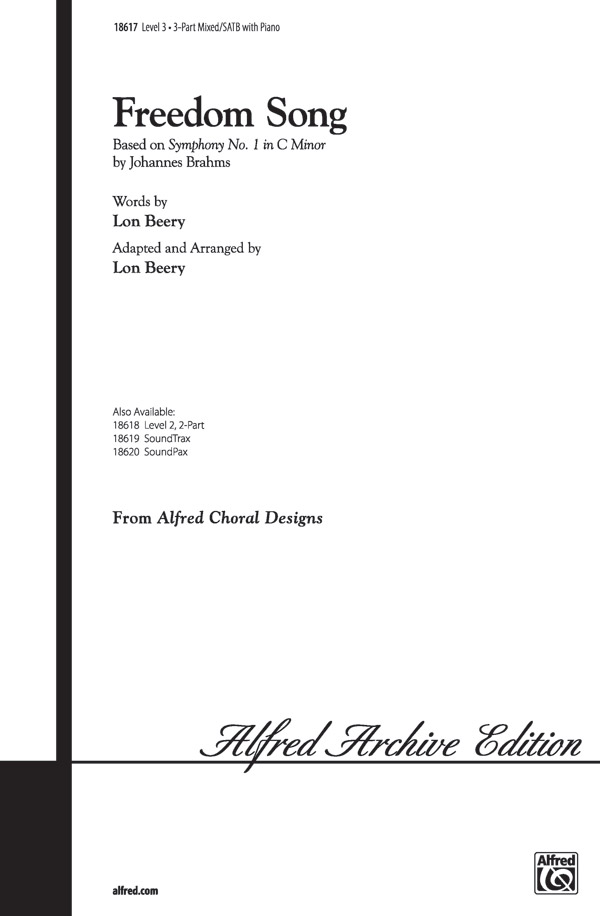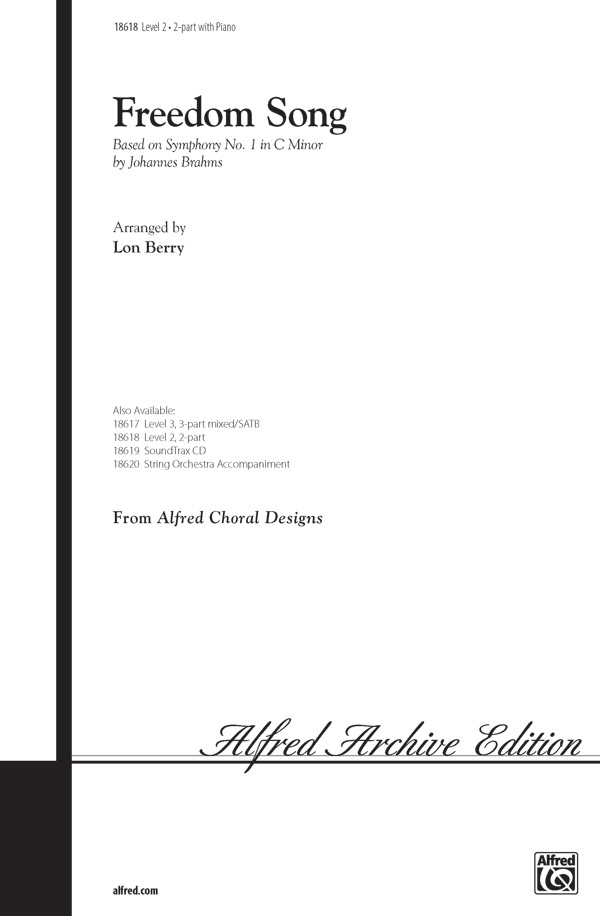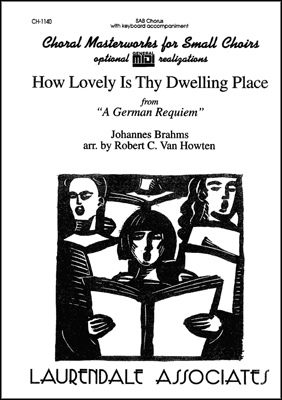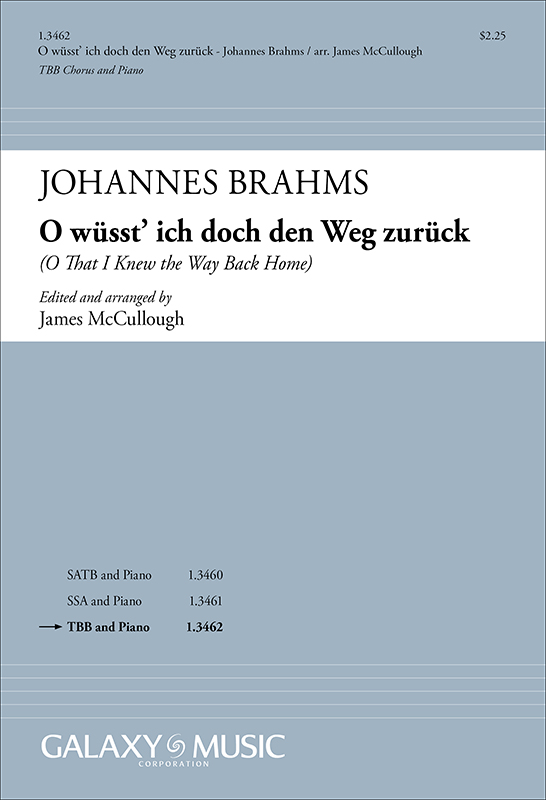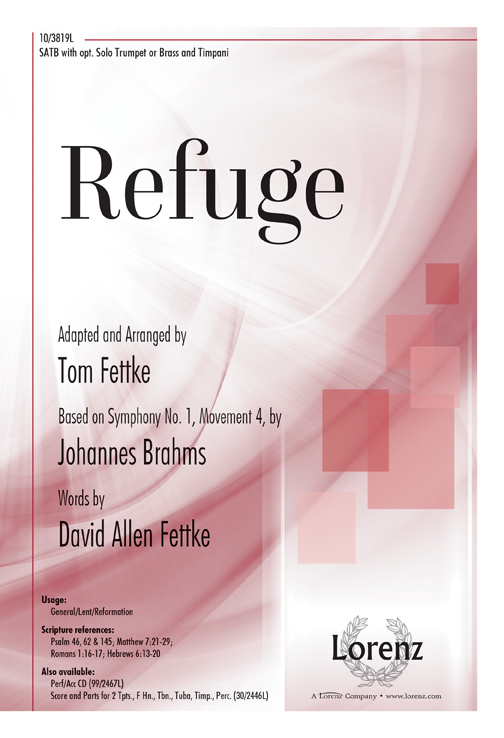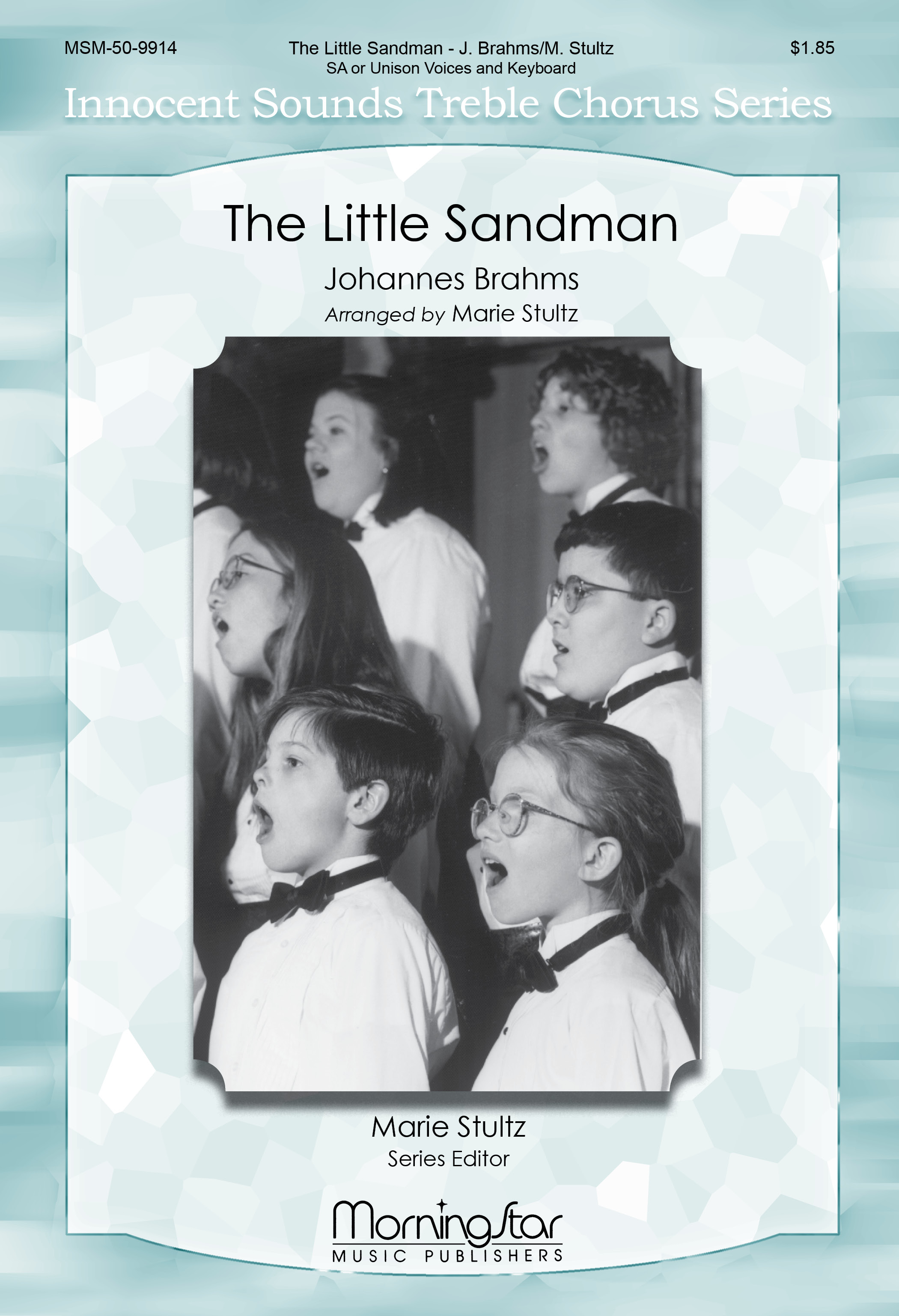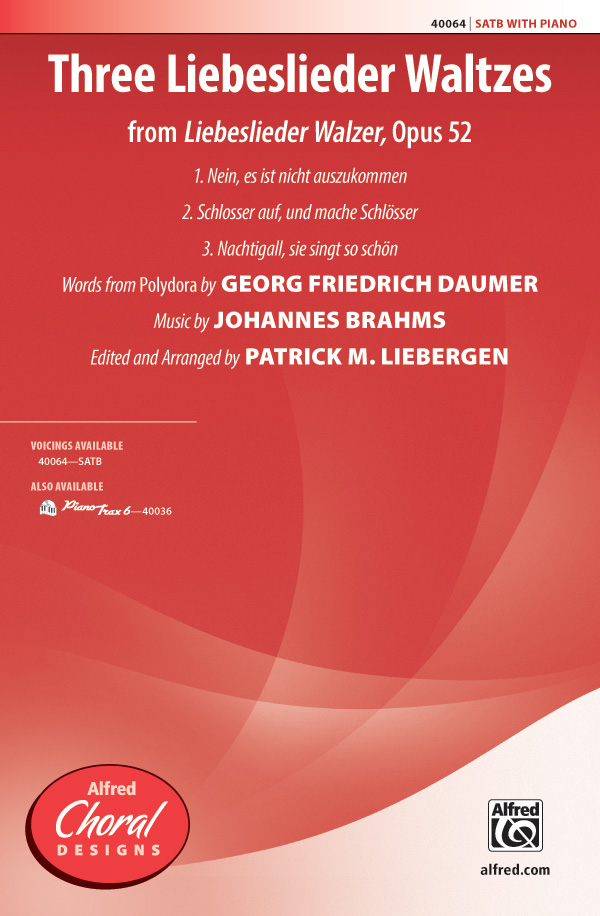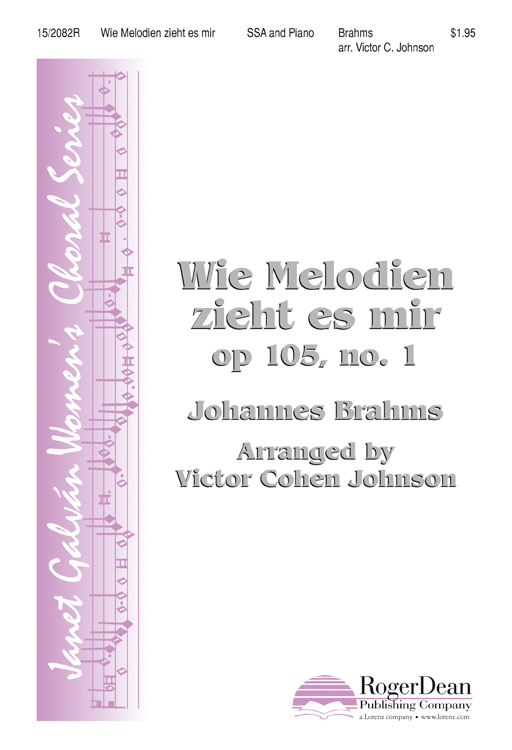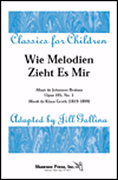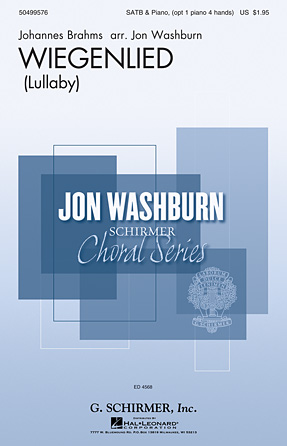In Celebration of the Human Voice - The Essential Musical Instrument
Home | Doo Wop | Barbershop | World | Contemporary | Christian | Vocal Jazz | Choral | Christmas | Instructional | Arrangements
Classical | Opera | Musicals | Personality | Young Singers | Disney | Videos | Songs | The Artists

Johannes Brahms

German pianist and composer Johannes Brahms is ranked among the masters of the Romantic era. Although he showed talent at the piano at an early age, he spent much of his young life performing rather than composing. Brahms's career was given a boost by composer Robert Schumann (1810-56) and his pianist wife Clara (1819-96); his close relationship with Clara, especially after she was widowed, has been the source of much speculation ever since. The pair exchanged passionate letters and went on holiday together, but Brahms opted to leave her behind to pursue his career and a life of bachelorhood. By the end of the 1860s he'd settled in Vienna, where he lived until his death from cancer in 1897. Musically he maintained the Romantic tradition of Ludwig van Beethoven, in opposition to the rise of composers such as Richard Wagner and Brahms's friend, Franz Liszt. His most famous composition is the lullaby, "Lied Wiegenlied" ("Cradle Song"), popularly known as simply "Brahms' Lullaby." His compositions include German Requiem (1866), Violin Concerto in D (1878) and Piano Concertos in B Flat (1878-81). |
Arrangements | Recordings | Trax CDs
Songbooks, Arrangements and/or Media
Displaying 1-28 of 28 items.
Johannes Brahms : 15 Selected Songs with CDs of diction lessons and piano accompaniments; includes historical notes, translations and International Phonetic Alphabet With diction lessons recorded by Irene Spiegelman, German diction coach at the Metropolitan Opera, and piano accompaniments recorded by Laura Ward, this collection of the most often taught Brahms songs is an excellent introduction to lieder. The diction for each song is recorded twice: first recited as an actor would speak it, showing flow of the language and mood, followed by a slow, deliberate lesson, allowing time for the student to repeat each line. This experienced language coach adapts the R in German in the slow versions as recommended for classical singers. She is also very sensitive to liaisons between word sounds in the musical settings. Songlist: Botschaft, Dein blaues Auge, Die Mainacht, Feldeinsamkeit, Immer leiser wird mein Schlummer, Meine Liebe ist, Mondnacht, O liebliche Wangen, Sapphische Ode, Sonntag, Vergebliches, Von ewiger Liebe, Wie Melodien zieht es mir Johannes Brahms : 75 Songs - High Voice This is the largest collection of Brahms songs commercially available. Historical notes on all songs address compositional context in the composer's career, remarks about the poets and early performance history. A new translation appears on the first page of each song. New musical research, clear new engravings make this a distinguished source of song literature. Songlist: Serenade, Sehnsucht, Ach, wende diesen Blick, Am Sonntag Morgen, Alte Liebe, An die Nachtigall, An eine Aeolsharfe, Auf dem Kirchhofe, Blinde Kuh, Botschaft, Dämmrung senkte sich von oben, Das mädchen spricht, Dein blaues Auge, Der Frühling, Der Gang zum Liebchen, Der Jäger, Der Schmied, Der Tod, das ist die kühle Nacht, Des Liebsten Schwur, Die Liebende schreibt, Die Mainacht, Erinnerung, Es hing der Reif, Es liebt sich so lieblich im Lenze, Es schauen die Blumen, Es träumte mir, Feldeinsamkeit, Geheimnis, Im Gartne am Seegestade, Immer leiser wird mein Schlummer, and more Johannes Brahms : 75 Songs - Low Voice This is the largest collection of Brahms songs commercially available. Historical notes on all songs address compositional context in the composer's career, remarks about the poets and early performance history. A new translation appears on the first page of each song. New musical research, clear new engravings make this a distinguished source of song literature. Songlist: Serenade, Ach, wende diesen Blick, Am Sonntag Morgen, Alte Liebe, An die Nachtigall, An eine Aeolsharfe, Auf dem Kirchhofe, Blinde Kuh, Botschaft, Dommrung senkte sich von oben, Dein blaues Auge, Der Frühling, Der Gang zum Liebchen, Der Jäger, Der Schmied, Der Tod, das ist die kühle Nacht, Die Mainacht, Erinnerung, Es hing der Reif, Es liebt sich so lieblich im Lenze, Es schauen die Blumen, Es träumte mir, Feldeinsamkeit, Geheimnis, Im Gartne am Seegestade, Immer leiser wird mein Schlummer, In der Fremde, Juchhe!, Lerchengesang, Liebestreu, and more Johannes Brahms : Three Sacred Choruses for Women's Voices Many of Brahms' early choral works are the result of his work in the 1850s as director of a women's choir in Hamburg and the choral society of Detmold. These three sacred choruses are based on rather complex contrapuntal forms: O Bone Jesu is a metric double canon in contrary motion. Adoramus te, Christe is a continuous four-voice canon at the fourth, fifth and octave. Regina coeli is a canon in contrary motion sung by two soloists with choral interjections of Alleluia. Together with an Ave Maria, these comprise Brahms' only published settings of Latin texts. Duration: ca. 3:30. Songlist: O Bone Jesu, Adoramus te, Christie, Regina coeli Johannes Brahms : Multi-Voice Songs: A Selection This volume consists of unaccompanied choral works composed or otherwise arranged by Johannes Brahms for mixed choruses as well as individual men's and women's choruses. Songlist: Love Songs, New Love Songs, Six Quartets, Three Songs, Seven Songs, Songs and Romances, Five Songs, Five Duets Johannes Brahms : German Folk Songs Throughout his life Brahms harmonized and arranged German folk songs for mixed choir. In these masterful versions the elegant simplicity of the originals always maintained, yet Brahms weaves well-shaped vocal lines and adds delicate harmonies to make polished songs of great charm. In this edition, John Lewers has fashioned highly effective and poetic English singing translations, which adhere to the rhyming scheme of the original. The result is a collection of instantly accessible yet little known repertoire, exploring a variety of scenes and moods, which will appeal to all mixed-voice choirs looking for imaginative concert repertoire. German and English text. Songlist: The Ardent Suitor, One Day I Went a-Riding, By a Lone Woodland Spring, Saint Emmeran, A Dove So White, A Lullaby Prayer, Saint Raphael, One Quiet Night, Farewell, The Lover's Vision, O Sweet, Delightful Maytime, Morning Song, The Reaper, The Heavenly Hunter, Separation, Awaken!, Invite Me, Sweet Maiden, The Fiddler, Below In the Valley, At Night, Awaken!, A House Stands by a Flowing Stream, Roses and Pearls, The Knight and the Lady, The Young Carpenter, Battle Prayer Johannes Brahms : 50 Selected Songs - Low Voice (Ger/Eng) Contents: Aeolian Harp - Am Sonntag Morgen - An Den Mond - An Die Nachtigall - An Ein Veilchen - Auf Dem Schiffe - Bei Dir Sind Meine Gedanken - Botschaft - Damm'rung Senkte Sich Von Oben - Der Gang Zum Liebchen - Der Jager - Der Tod, das ist Die Kuhle Nacht - Die Kranze - Die Mainacht - Erinnerung - Es Hing Der Reif - Feldeinsamkeit - Immer Leiser Wird Mein Schlummer - In Waldeseinsamkeit - Komm Bald! - Kommt Dir Manchmal in Den Sinn - Lerchengesang - Liebestreu - The Little Sandman - Madchenlied - Meine Liebe ist Grun - Meine Lieder - Minnelied - Nachtigall - O Kuhler Wald - O Lieliche Wangen - O Wusst' Ich Doch Den Weg - Parole - Rothe Abendwolken Zieh'n - Ruhe, Sussliebchen - Sapphische Ode - Schmied - Sehnsucht - Wiegenlied - Sonntag - Standchen - Therese - Trennung - Treue Liebe - Vergebliches Standchen - Verrath - Von Ewiger Liebe - Wie Bist Du, Meine Konigin - Wie Melodien Zieht Es Mir - Wir Wandelten. Songlist: Minnelied (Love Song), Op. 71, No. 5, Therese (Theresa), Op. 86, No. 1, Am Sonntag Morgen (On Sunday Morning), Op. 49, No. 1, Sonntag (Sunday), Op. 47, No. 3, In Waldeseinsamkeit, Op. 85, No. 6, Botschaft (The Message), Op. 47, No. 1, Feldeinsamkeit (In Summer Fields), Op. 86, No. 2, Immer Leiser Wird Mein Schlummer, Op. 105, No. 2, Die Mainacht (The May Night), Op. 43, No. 2, Meine Liebe Ist Grun (My Love Is Green), Op. 63, No. 5, O Kuhler Wald (O Shady Wood), Op. 72, No. 3, O Wusst' Ich Doch Den Weg Zuruck, Op. 63, No. 8, Sapphische Ode (Sapphic Ode), Op. 94, No. 4, Der Schmied (The Smith), Op. 19, No. 4, Standchen (Serenade), Op. 106, No. 1, Vergebliches Standchen (The Vain Suit), Op. 83, No. 4, Von Ewiger Liebe (Love Lasts), Op. 43, No. 1, Wie Bist Du, Meine Konigin, Op. 32, No. 9, Wiegenlied (Sleep, Gently Sleep), Op. 49, No. 4, Wie Melodien Zieht Es Mir, Op. 105, No. 1, Wir Wandelten (We Walked One Day), Op. 96, No. 2, Liebestreu, (Faithfulness), Op. 3, No. 1, Sandmannchen (The Little Sandman), WoO 31, No. 4, Meine Lieder (My Songs), Op. 106, No. 4, Der Jager (The Huntsman), Op. 95, No. 4, Treue Liebe (True Love), Op. 7, No. 1, An Eine Aeolsharfe (To An Aeolian Harp), Op. 19, No. 5, An Den Mond (To The Moon), Op. 71, No. 2, An Die Nachtigall (To A Nightingale), Op. 46, No. 4, An Ein Veilchen (To A Violet), Op. 49, No. 2, and more Johannes Brahms : 40 Favorite Songs - High Voice This compilation presents 40 of Brahms' most popular vocal works, including Ruhe, Süssliebchen, Wiegenlied ("Cradle Song"), Die Mainacht, Meine Liebe ist grün, and Wie Melodien zieht es mir. An outstanding collection for study as well as performance, it features lyrics in both German and English. Johannes Brahms : Requiem English Only. Songlist: Blessed they (Brahms-Requiem), Behold, all flesh (Brahms-Requiem), Lord, make me to know (Brahms-Requiem), How lovely is Thy dwelling (Brahms-Requiem), Ye now are sorrowful (Brahms-Requiem), Here on earth (Brahms-Requiem), Blessed are the dead (Brahms-Requiem) Johannes Brahms : Sieben Lieder, Op. 62 The seven choral songs, stylistically very diverse, show clear folk music traits together with Brahm's characteristic leanings towards multiple choirs and to polyphonic or canonic writing. The name SAM-Klang takes the three voice parts from the arrangements -- Soprano, Alto and Men -- and combines it with the Scandinavian and German words for sound to create the portmanteau word sound together or harmony. The series offers basic and advanced choral repertoire. In addition to new repertoire and new arrangements, you will also find essential parts of the classical German, Scandinavian, French and English SATB repertoire, carefully and considerately reworked for SAM. The arrangements retain the characteristic features of the original movements and have almost the same richness of timbre, resulting in works which sound nearly unchanged to an audience. Piano reductions of all choral movements facilitate rehearsal preparation. The arrangements offer development opportunities for all voice sections, bringing new life and new quality to SAM choir work. SAM-Klang enables youth choirs to gain access to classical choral literature and ensures that mixed choirs who face challenges in finding singers for all male voice parts continue to have access to well-loved repertoire. Songlist: All' Meine Herzgedanken, Dein Herzlein Mild, Es Geht Ein Wehen Durch Den Wald, Rosmarin, Vergangen Ist Mir Gluck Und Heil, Von Alten Liebesliedern, Waldesnacht Johannes Brahms : Love Song Waltzes (Liebeslieder Waltzes), Opus 52 In 1868, Johannes Brahms decided to compose a romantic song cycle, the 18 "Liebeslieder Wälzer" or "Love Song Waltzes," Opus 52. When published in 1870, they were an instant success, popular with all musicians and singers. This choral score will include choir and soloist parts, in German and in English, with piano accompaniment. Johannes Brahms : Love Song Waltzes (Liebeslieder Waltzes), Opus 52 In spite of being well-known as a great composer of large, complex musical works, some of Brahms' most successful works were smaller, more intimate pieces, such as the eighteen "Liebeslieder," or "Love Song Waltzes," Opus 52, for Soli, Chorus and Piano Four-Hand Accompaniment. Choral score with piano duet accompaniment. Johannes Brahms : Love Song Waltzes, Opus 65 A Choral Extended Work for SATB composed by Johannes Brahms. Johannes Brahms : Song of the Fates (Gesang der Parzen), Opus 89 A Choral Extended Work for SSAATTB composed by Johannes Brahms. Johannes Brahms : Rhapsody (Rhapsodie), Opus 53 Brahms wrote the Alto Rhapsody, Op 53, for contralto, male chorus, and orchestra in 1869 as a wedding gift for the daughter of Robert and Clara Schumann. The Rhapsody is a setting of verses from Goethe's "Harzreise im Winter." Choral score in German and English with piano accompaniment. Johannes Brahms : Nanie-Nenia Brahms' Opus 82, for chorus and orchestra, titled "Nänie" (the German form of the Latin word "nenia," meaning "a funeral song") sets to music a poem by Friedrich Schiller. Brahms composed the piece in 1881, in memory of his deceased friend, Anselm Feuerbach. Choral score with piano accompaniment. Text in German and English. Johannes Brahms : Song of Fate (Schicksalslied), Opus 54 Brahms composed his "Schicksalslied" (Song of Destiny), Opus 54, between 1868 and 1871. It is a short, powerful work for chorus and orchestra. The text is that of Friedrich Holderlin's poem "Hyperions Schicksalslied." Choral score with German and English text and piano accompaniment. Johannes Brahms : Fest-und Gedenksprüche, Opus 109 An a cappela chorus with German text for eight voices, composed by Johannes Brahms. Johannes Brahms : Triumphal Hymn (Triumphlied), Opus 55 A Choral Extended Work for SSAATTBB Divided Chorus with B Solo composed by Johannes Brahms. Johannes Brahms : Two Motets, Opus 29 A choral worship collection for SATBB, composed by Johannes Brahms. Titles: 1. Es ist das Heil uns kommen her * 2. Schaffe in mir, Gott, ein rein Herz. Johannes Brahms : A German Requiem, Opus 45 English Edition. This 96 page choral score is taken from a previous Belwin Mills publication. It provides the choir and soloist parts along with a piano reduction of the orchestral parts, with notations, instrument cues, and vocal text in English language. This was to be Brahms' longest work, in 7 movements, and was based on sacred biblical text, originally written in the German language, and therefore did not follow the traditional Latin requiem text. Includes: Blessed are they that mourn * Behold, all flesh is as the grass * Lord, make me to know the measure of my days on earth * How lovely is thy dwelling place * Ye are now sorrowful * Here on earth we have no continuing place * Blessed are the dead. Johannes Brahms : A German Requiem (Ein Deutsches Requiem), Opus 45 This 95 page score is taken from a previous Belwin Mills publication. It provides the choir and soloist parts along with a piano reduction of the orchestral parts, with notations, instrument cues, and vocal text in German language. In the Table of Contents an English translation is included. This was to be Brahms' longest work, in 7 movements, and was based on sacred biblical text, in German language, and therefore did not follow the traditional Latin requiem text. Includes: Blessed are they that mourn * Behold, all flesh is as the grass * Lord, make me to know the measure of my days on earth * How lovely is thy dwelling place * Ye are now sorrowful * Here on earth we have no continuing place * Blessed are the dead. Johannes Brahms : Neue Liebeslieder Walzer, Opus 65 Edited by Roger Wagner, Neue Liebeslieder Walzer, Opus 65 presents 15 choral pieces in SATB voicing. Titles: Verzicht, o Herz, auf Rettung (Renounce, O heart, all rescue) * Finstere Schatten der Nacht (Perilous darkness of night) * An jeder Hand die Finger (On either hand with pledges) for soprano solo * Ihr schwarzen Augen, ihr durft nur winken (Thosse dark'ning glances, they need bu beckon) for bass solo * Wahre, wahre deinen sohn (Neighbor, neighbor, guard your son) for alto solo * Rosen steckts ir an die Mutter (Mother decked my breast with roses) for soprano solo * Vom Gebirge Well' auf Well' (From the mountain, wave on wave) * Weiche Gräser im Revier (Sheltered softly midst the grass) * Nagen am Herzen (Heartsore and restless) for soprano solo * Ich kose süss mit der und der (I seetly kiss with her and her) for tenor solo * Alles, alles in den Wind (Will, nilly in the wind) for soprano solo * Schwarzer Wald, dein Schatten (Darkest Wood, your shadows) * Nein, Gelibter, setze dich mir (No, beloved, sit not near) duet for soprano and alto * Flammenauge, dunkles Haar (Fervent glances, raven hair) * Zum Schluss: Nun, ihr Musen, genug! (Conclusion: Now, ye Muses, enough) Johannes Brahms : German Requiem Breitkopf & Härtel edition of Brahms's greatest vocal work, fully scored for solo voices, mixed chorus and orchestra. 208 pgs. Johannes Brahms : A German Requiem Scored for mixed chorus, solo voices and full orchestra, this choral masterpiece is Brahms' greatest vocal composition, and one of the most performed works in the religious music repertoire. Instrumentation. Text and Translation. |
Displaying 1-41 of 41 items.
Contents:ÊRoses Red Are Blooming ¥ Hey There, Gypsy ¥ Heaven's Light Streams Bright
From Liebeslieder Walzer, Three Gypsy Love Songs. Performed at the Choral Arts Symposium, Vance George, conductor
Robert Shaw's edition of this short Brahms motet (Opus 29) was prepared before Shaw's untimely death in 1999 and is the first of his editions to be published posthumously. The publication contains both German and English texts as well as Mr. Shaw's meticulous markings for performance in either language. This beautiful setting would be appropriate for Communion, Lent, or at any time during the church year.
Brahms was one of the first composers to write specifically for women's choirs, and his lush harmonies and expressive keyboard writing are perfect for the treble voice. This lovely setting of a beautiful text speaks of a love and lover yet to be discovered and is sure to move singers and audiences alike.
Arranger: Chester L Alwes
Arranger: James McCullough
This elegant art song by Johannes Brahms is an excellent introduction to the romantic era for treble choirs of all ages. English and German lyrics. Available: 2-Part. Performance Time: Approx. 2:40.
Arranger: John Leavitt | Country: Germany
Introduce your choir to an orchestral masterwork with this choral adaptation of the main theme from Brahm's Symphony No. 1. A new text exults the dream of freedom shared by all the world's peoples. SoundTrax CD features live strings, or add your own string orchestra.
Arranger: Lon Beery
Introduce your choir to an orchestral masterwork with this choral adaptation of the main theme from Brahm's Symphony No. 1. A new text exults the dream of freedom shared by all the world's peoples. SoundTrax CD features live strings, or add your own string orchestra.
Arranger: Lon Beery
Solfege edition: Major mode.
Based on the Brahms Piano Intermezzo, Op. 118, No. 2, with a traditional Latin text and the Prayer of St. Francis of Assisi, this reflective work is a gorgeous choral tapestry with rich harmonies and expressive vocal lines. Duration: ca. 3:50.
Arranger: Laura Farnell
Quoting Cradle Song by Brahms at beginning and end, this traditional German folk song is a beautiful arrangement for young singers teaching gentle singing and proper breath support in either German and/or English languages. The addition of handchimes and string bass adds even more warmth and sparkle to this gentle setting.
Arranger: John Leavitt
Three Gypsy Love Songs. Performed at the Choral Arts Symposium, Vance George, conductor
Three Gypsy Love Songs. Performed at the Choral Arts Symposium, Vance George, conductor
From the German Requiem. The Requiem of 1868, was written in memory of his mother, and established Brahm's reputation as a composer. The text for this chorus, Psalm 84, is thought to be one of the Pilgrim Songs which were sung on the journeys to the temple for the annual feasts. Optional MIDI file available separately (on MIDI disk LMF-1001)
Duration 5:06
Newly engraved, this is the classic G. Schirmer edition now with English and German texts. Available separately, the VoiceTrax CD features a full performance with vocals, full orchestra accompaniment and individual part-predominant tracks to assist in rehearsal and individual practice. Duration: ca. 5:45.
From Liebeslieder Walzer, Three Gypsy Love Songs. Performed at the Choral Arts Symposium, Vance George, conductor
Contents: When You Fondly Glance at Me, O Broken Heart, Oh, the Ladies, My Beloved, Not So Close, Crashing Waters from on High, In Conclusion
Johannes Brahms delighted in the beauty of the folk songs of his homeland; he added artful accompaniments to them and arranged many for choirs.
Arranger: Mary Goetze
From Liebeslieder Walzer, Three Gypsy Love Songs. Performed at the Choral Arts Symposium, Vance George, conductor
Here are four selections from Brahms' impeccable Liebeslieder Walzer, rearranged for piano two-hands from the original four-hands accompaniment. With texts from poems reflecting on love, they form a fine set for choruses at the high school level and up. A fantastic introduction to music of the Romantic era! In German with English translation, selections include: Verzicht, O Herz, auf Rettung; Finstere Schatten der Nacht; Vom Gebirge Well' auf Well'; Weiche Graser im Revier. Total duration: ca. 5:15.
Arranger: John Leavitt | Country: Germany
From Liebeslieder Walzer, Three Gypsy Love Songs. Performed at the Choral Arts Symposium, Vance George, conductor
"Brahms' best songs are small, priceless jewels. They are unusual, mysterious, inventive, bass heavy, uncomplicated, melodious, and are glorious creations! All 206 of them are rejuvenating to hear. They are worthy of being performed more often than they are, right along with Schubert, whom Brahms revered.
My having edited and arranged this gloriously pensive and nostalgic Brahms song for chorus is an attempt to build more faithful Brahms lovers. O wusst' ich doch den Weg zuruck is a magnificent, miniature masterpiece of nostalgic longing for childhood, relinquishing mature growth, and yearning for an earthly, unattainable paradise." -James McCullough
Duration: 4:04Arranger: James McCullough
From Liebeslieder Walzer, Three Gypsy Love Songs. Performed at the Choral Arts Symposium, Vance George, conductor
The immortal strains of Brahms's "Symphony 1, Movement 4" create the hymn tune for this timeless classic, which features new text adapted from the "Scottish Psalter" (Psalm 46). Uses of unison and two-part voices sound rich and full, while deft harmonic touches provide a continuous thread of wonder and delight. The strong final verse commands all nations to raise their voices in God's praise and is capped by final, jubilant amens.
Arranger: Tom Fettke
Three Gypsy Love Songs. Performed at the Choral Arts Symposium, Vance George, conductor
This special Ed Harris arrangement is one of the finest masterworks ever released for the elementary level. Taken from Brahms' Volkskinderlieder, this lullabye is simply charming. Available: 2-Part.
Brahms' radiant Lieder is crafted into this lovely SSA choral work. Unison singing establishes the melody then breaks off into three-part harmony. Individual part-singing in the second verse makes this small masterwork an excellent teaching piece as well as a performance gem.
Arranger: Jill Gallina | Country: Germany
This German legend text is set to music by Johannes Brahms. The strophic song set in variation is rhythmic, all parts receiving melody, and with important use of dynamics and upward modulation of key.
Arranger: Stan Pethel
One of 14 folksongs Brahms collected and arranged for children (Volks-Kinderlieder) and dedicated to Robert and Clara Schumann. Famous, timeless melody HEIDENR?EN appears in teaching collections worldwide. Unison or SA and Keyboard. Level 2 Difficulty (grades 4-6 and older).
Arranger: Marie Stultz
Perform one, two, or all three of these carefully selected movements from one of Brahms' most famous choral works. The original four-hand piano part has been condensed for a single player, while maintaining the integrity of the Romantic era accompaniment. Well-suited for choirs of distinction.
Arranger: Patrick Liebergen
Uses: General, Reformation, Hymn Arrangement Scripture: I Corinthians 6:19-20; Philippians 2:5-11; I Peter 2:9 Music of the masters, for the Master is exemplified in this sturdy adaptation of an illustrious Brahms melody. A faith-affirming text reminds the church of its mission, while stately part-writing and solid organ support lifts the piece into the hearts of the listener. This is an encouraging word for the church triumphant. Don't miss this one!
Arranger: Fred Bock
From Liebeslieder Walzer, Three Gypsy Love Songs. Performed at the Choral Arts Symposium, Vance George, conductor
This beautiful melody from Brahms retains the musical integrity of the vocal solo while providing a worthy addition to the romantic repertoire for women's choirs.
Arranger: Victor C. Johnson
Designed for the Classics for Children Series, this lush art song by Johannes Brahms was originally written for solo voices and has been crafted into a 2-part arrangement. The lovely melody and harmonic structure remains and Jill Gallina's arrangement of Wie Melodien Zieht Es Mir is suitable for children's choirs or any 2-part ensembles.
Arranger: Jill Gallina
Arranged simply for mixed voices, clarinet and piano four-hands, the lovely Brahms cradle song becomes a work for reflection, healing and introspection, especially appropriate as a quiet encore or choral benediction. Optional 1 piano, 4 hands included with octavo.
Arranger: Jon Washburn
![]() Vocal Harmony Arrangements - Home
Vocal Harmony Arrangements - Home
Christian | Gospel | Standards | Musicals | Specialty | World | Barbershop | Contemporary | Vocal Jazz | Choral | Christmas
Mixed Voices | Female | Male | 8 Parts | 6 Parts | 5 Parts | 3 Parts | 2 Parts | Medleys | Solo | Folio Series | New Releases
Select a Category |
Want to Sing? - Find a Chorus Near You
List of Choruses by State | List of Choruses by City

